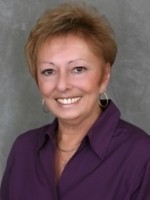How Does a Reverse Mortgage Work?
Wednesday, February 20, 2013 -
Article by:
sharon duffy - InterCintinental Capital Group -
![]()
How Does A Reverse Mortgage Work?
A reverse mortgage is a loan for senior homeowners that uses the home's equity as collateral. The loan generally does not have to be repaid until the last surviving homeowner permanently moves out of the property or passes away. At that time, the estate has approximately 6 months to repay the balance of the reverse mortgage or sell the home to pay off the balance. Any remaining equity is inherited by the estate. The estate is not personally liable if the home sells for less than the balance of the reverse mortgage.
Calculate Your Eligibility
Age of homeowner (youngest)Age 60Age 61Age 62Age 63Age 64Age 65Age 66Age 67Age 68Age 69Age 70Age 71Age 72Age 73Age 74Age 75Age 76Age 77Age 78Age 79Age 80Age 81Age 82Age 83Age 84Age 85Age 86Age 87Age 88Age 89Age 90Age 91Age 92Age 93Age 94Age 95Age 96Age 97Age 98Age 99
Home value$50,000$60,000$70,000$80,000$90,000$100,000$110,000$120,000$130,000$140,000$150,000$160,000$170,000$180,000$190,000$200,000$210,000$220,000$230,000$240,000$250,000$260,000$270,000$280,000$290,000$300,000$325,000$350,000$375,000$400,000$425,000$450,000$475,000$500,000$525,000$550,000$575,000$600,000$625,000$650,000$675,000+
Mortgage debt$0$10,000$20,000$30,000$40,000$50,000$60,000$70,000$80,000$90,000$100,000$110,000$120,000$130,000$140,000$150,000$160,000$170,000$180,000$190,000$200,000$210,000$220,000$230,000$240,000$250,000$260,000$270,000$280,000$290,000$300,000$325,000$350,000$375,000$400,000$425,000$450,000$475,000$500,000$525,000$550,000$575,000$600,000$625,000$650,000$675,000+
Eligibility For a Reverse Mortgage
To be eligible for a HECM reverse mortgage, the Federal Housing Administration (FHA) requires that all homeowners be at least age 62. The home must be owned free and clear or all existing liens must be satisfied with proceeds from the reverse mortgage. If there is an existing mortgage balance, it can be paid off completely with the proceeds of the reverse mortgage loan at closing. Generally there are no credit score requirements for a reverse mortgage.
Outliving the Reverse Mortgage
Generally speaking, a reverse mortgage loan cannot be outlived and will not become due, as long as at least one homeowner lives in the home as their primary residence, continues to pay required property taxes and homeowners insurance and maintains the home in accordance with FHA requirements.
Estate Inheritance
In the event of death or in the event that the home ceases to be the primary residence for more than 12 months, the homeowner's estate can choose to repay the reverse mortgage loan or put the home up for sale.
If the equity in the home is higher than the balance of the loan when the home is sold to repay the loan, the remaining equity belongs to the estate.
If the sale of the home is not enough to pay off the reverse mortgage, the lender must take a loss and request reimbursement from the FHA. No other assets are affected by a reverse mortgage. For example, investments, second homes, cars, and other valuable possessions cannot be taken from the estate to pay off the reverse mortgage.
Loan Limits
The amount that is available generally depends on four factors: age (older is better), current interest rate, appraised value of the home and government imposed lending limits. Use the calculator to estimate how much you could be eligible for.
Distribution of Money From a Reverse Mortgage
There are several ways to receive the proceeds from a reverse mortgage.
oLump sum - a lump sum of cash at closing.
oTenure - equal monthly payments as long as the homeowner lives in the home.
oTerm - equal monthly payments for a fixed number of years.
oLine of Credit - draw any amount at any time until the line of credit is exhausted.
oAny combination of those listed above
Difference Between a Reverse Mortgage and a Home Equity Loan
Generally a home equity loan, a second mortgage, or a home equity line of credit (HELOC) have strict requirements for income and creditworthiness. Also, with other traditional loans the homeowner must still make monthly payments to repay the loans. A reverse mortgage generally has no credit score requirements and instead of making monthly mortgage payments, the homeowner receives cash from the lender.
With a reverse mortgage the amount that can be borrowed is determined by an FHA formula that considers age, the current interest rate, and the appraised value of the home. Typically, the more valuable the home, the higher the loan amount will be, subject to lending limits.
To summarize the key differences, with traditional loans the homeowner is still required to make monthly payments, but with a reverse mortgage the loan is typically not due as long as the homeowner lives in the home as their primary residence and continues to meet all loan obligations. With a reverse mortgage no monthly mortgage payments are required, however the homeowner is still responsible for property taxes, insurance, and maintenance.
Didn't find the answer you wanted? Ask one of your own.
Reverse Mortgage Calculator
Step 1 & 2 of this calculator determine if you are eligible for a Reverse MortgageFeatured Lenders
Cameron Burke
Vision One Mortgage
Huntington Beach, CA
Join Lender411
Are you a mortgage or real estate professional?




